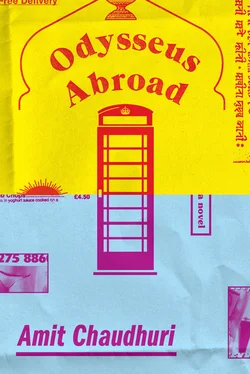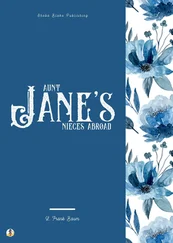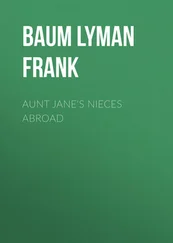—
“Asians” is what the couple would be called here. Ananda didn’t see himself as “Asian.” He was keen to militate against the category, though his militancy must, naturally, remain incommunicable to the people it was intended for. He was Indian. He’d go back home some day — the deferred promise defined him. When he’d visited London in the summers of 1973 and 1979, he’d seen “Asians” for the first time — a family in Belsize Park in particular, whom his parents knew from their time here before they’d returned. The nice Bengali bhadralok lady had a boy who was Ananda’s age — eleven. He had casual long hair which fell repeatedly on his eyebrows, and he spoke exactly as a London boy would, unobtrusively dispensing with many of his t’s. He was , actually, English. Speaking the language in that way translated his features, his facial muscles, into the idiom of this city’s culture. They’d run into each other during subsequent explorations in the neighbourhood that summer, but never talked again. Ananda was convinced that this was an Indian boy who belonged more to Belsize Park than to India; he was enveloped by a curious shyness when he saw him in the distance, and tried to avoid him.
The “rivers of blood” speech was still quite fresh that year, and he remembered his uncle — in flared trousers, sideburns tapering down from the thinning scalp — refer to it with an impish smile. In less nice neighbourhoods, the National Front left parcels of shit on the doorsteps of Indians and Pakis. Indians had then only just emerged into this new identity—“Asian”—from having not long ago been “black.” In fact, his uncle still called himself “black”—having maybe boasted of his Bengali antecedents one moment ago (“Tagore turned Bengali into one of the seven richest literatures in the world,” he’d say, citing an English scholar, not bothering to tell him what the other six literatures were). In the time of colonisation even Tagore — a veritable bearded Zeus atop Olympus — had playfully called himself “black.” It was the convenient catch-all en masse term for those not from Europe. The Greeks, responsible for European civilisation, only barely escaped the misnomer by virtue of being lightly tanned. However, Ananda had sensed the Greeks were visible to the naked English eye from a mile off. The gradations of colour between white and black were infinite in London; you didn’t need the seven colours of the rainbow here — these two were heterogeneous enough to suffice.
His uncle hadn’t completely eschewed the word — in fact, was fairly comfortable with it — as, over time, with most of his hair gone, and given his round nose, he was beginning to look Jamaican. He’d been mistaken for a Jamaican by strangers a few times. This both amused and troubled him. “Don’t think that Africans and West Indians all look similar,” he told Ananda. “If you study them carefully, you’ll notice Ethiopians are very good-looking.” He had an agenda for race. “Ethiopian,” he’d say under his breath when a handsome dark-skinned man walked by. Partly he continued using the word because he’d come to England when “black” and “white” were the only two camps in the country. Partly it was to distance himself from the Bengali bhadralok, who, with their pusillanimous ambitions (to become GPs or at the very least clerks in the railways), their small semi-detached houses in East London and their children in Westminster and Harrow, he saw as the very antithesis of himself — solitary, without roots, without family or clear future. “I’m a black Englishman,” he’d say proudly to fresh acquaintances. He always wore a tailored three-piece suit with a maroon silk tie neatly ensconcing his collar, and a matching handkerchief in his breast pocket. The matter of colour was a joke to him, Ananda suspected — just as it was to the Africans. He’d recount a conversation he’d once had with a bunch of émigrés in 1957, his first year in London, when they were telling each other where they’d come from. One said, smiling, apologetic, “I… I am from the ‘dark continent.’ ” Western civilisation was all vanity, his uncle said to Ananda. The Africans led lives of continual irony.
The train passed Mornington Crescent without stopping. He caught a much-prized glimpse of the platform. Camden Town and Chalk Farm were dispatched easily; less than five minutes after Mornington Crescent, the train slowed down for Belsize Park. The old Gujarati in the jacket had nodded off; the woman — Ananda saw them both through the window when he got off, hurtling forth — was in a wakeful slumber, eyes deep and fixed. Gone. He went up the stairs, then past the semi-circular hatch (through which the platform from which he’d just risen was visible), with its onrush of air each time a train approached or after it departed — invisible gust, by which you knew a journey’s aftermath or closeness. His uncle and he had strolled past the hatch a hundred times in their lackadaisical way: they never hurried for the trains, not even upon being warned by that warm breeze.
Through the collapsible doors on to the spherical cage, the lift. More than anything — escalator or staircase — this antique piece of ironwork was his connection to what was subterranean here. From the depths he emerged to view Haverstock Hill in the summer. At the exit, instead of weighing the zebra crossing, he turned right, passing the florist’s adjoining the station, where someone behind the glass was harvesting bouquets for customers, choosing, bending, and embracing the flowers. The row of restaurants in the shade on Ananda’s right-hand side appeared to regard him from an imperceptible incline. Weaving in and out of the shadows of trees planted at intervals, he crossed to the Hampstead Town Hall. Its ten steps rising to a sturdy black door, its facade of brick, red stone, and white borders, were inextricably related in his mind to the Pujas. Was it still a town hall? Or something else? The Pujas had moved to King’s Cross. Yet each time he saw the building his memory summoned up two crowded occasions when he, his uncle, and his parents had come here for the festival, his uncle dawdling shyly, half-reluctant to encounter other Bengalis. They’d approached the space — thick with merrymakers — before the majestic staircases on either side, glimpsed, on the first floor, the goddess, noted the festoons of marigold, descended with the crowd to receive khichudi. The English ignored the festivities; as Forster had said, they’d never had gods, only goblins and fairies. They wouldn’t know what it meant to have gods watching over you; they didn’t know what to do with them. So, on the whole, they steered clear of the autumnal droves of women in saris, the men in suits, or flaunting dhutis. He turned left, down the bollarded slope of Belsize Avenue.
—
The sun fell on the opposite side of the road. He walked past the Scandinavian-type apartments as well as the spacious opening into Belsize Village; crossing as if on cue to the other side, continuing a few seconds up the road, he noted the tile that said BELSIZE PARK NW3. The houses on the right paraded themselves one after the other, the front door up a flight of steps — they were like actresses on a stage, ageless, full frontal for the audience. They had their trinkets — columns, pediments, fluted whorls. The basement was on ground level; the main house occupied a proscenium. Number 23—which was coming up — had a green door; number 24 was maroon. On the border of 23—separating the steps from what could be used as a parking space — was a very low wall, a platform you could even sit on. Through the sunlit space by it, Ananda advanced to his uncle’s room at the back. There were two empty milk bottles on the ground, and a garbage bin, the plastic liner making a narrow lip under the lid. And his uncle’s windows — fortified, for some reason, with bags from Budgens. He wasn’t sure if his uncle ever carried a briefcase. Even when they’d twice had a rendezvous at Moorgate Station, when his uncle still worked in the “city,” Ananda hadn’t seen him with one. Maybe briefcases were overrated by office-goers, and his uncle had shown that it was possible to live without them. His sole accessory as a peripatetic man was the Budgens bag. He also carried one — maybe to guarantee he’d never be short — folded in the pocket of his mac or jacket. Even when walking about with minuscule cargo, his closed fist would have penetrated the loop of the bag into the mac pocket, with it swinging idly from his wrist as he walked. He probably didn’t believe in throwing the bags away just in case he ran out in the future, which is why he stuffed them against the windows. Ananda rapped on one of the sealed panes. A cat — white with patches of carpet brown — which had come to pry among the bottles, and was loping away from Ananda, turned to look. Its tail was raised like a mast. It padded off to the garden at the back; “garden” was too generous a name. It — the sunlit lot — was green, overgrown, and generally empty. For all his uncle’s rhapsodising about nature and the wilds, his bestial love of the tiger and forests, Ananda had never seen him so much as glance at the “garden.” Maybe it wasn’t wild enough. It was unkempt, though. To underline his sharp raps on the pane, he pressed the buzzer for “Nandy.” He needn’t have. His uncle was nothing if not alert. An instant after Ananda had put thumb to buzzer, he heard the door being unlatched — almost anticipatorily. His uncle was wearing a maroon dressing gown. “ Hello Pupu,” he said, glad, but without surprise, as you would to someone who was overdue.
Читать дальше











